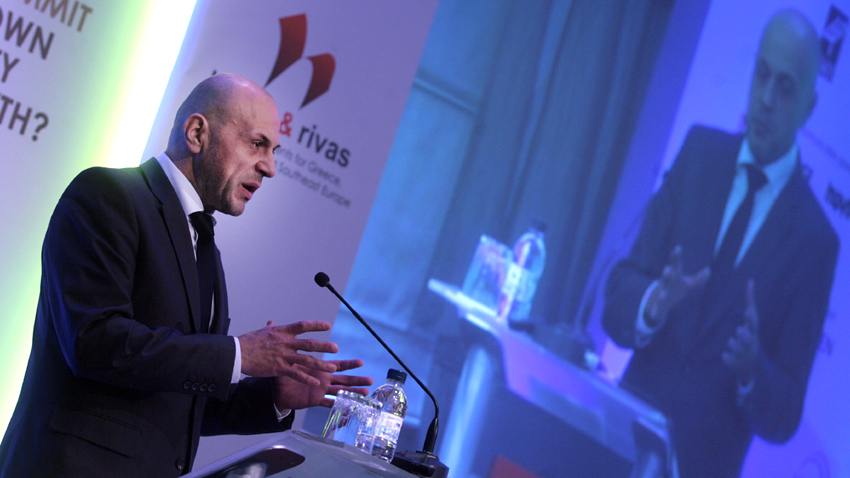What are the economic challenges facing Europe and its potential for growth – these topics were discussed by European politicians at the highest level, government ministers of Bulgaria, senior business managers, as well as financial and political analysts at the Fourth Summit of the EU-South Eastern Europe held on October 14-15 in Sofia.
Carl Bildt, former Prime Minister of Sweden, stressed the main question – will Sofia be able to cope with the challenges and situations to come? One of the major problems of Europe currently is the migration issue. At this moment it is an economic burden for the EU countries and poses a serious political problem. According to Bildt, however, if the countries of the Union manage to deal with the integration of migrants, it can even help the economy. In this moment of the migration crisis, it is important to have a stable economy. Bildt also said the digital and combined capital markets are key to enhancing the competitiveness of the EU and that the EU should deal with the problem as a group of countries rather than individually. Joint efforts would help to a faster resolution of the crisis issue. Crucial for the future economic development is whether Great Britain will remain a full member.
Tomislav Donchev, Deputy Prime Minister for European funds and economic policy, spoke about the problems Bulgaria and Europe are faced with and which are the most appropriate solutions for growth, in his opinion:

Experts came to the conclusion that it is a big error to look for a solution within the framework of national states. According to Tomislav Donchev, in the interest of development, we should pay more attention to the optimism, trust between the main players in the market, reputation as a major economic factor and the pursuit of success. Regarding reforms he said:
"Reforms are not made once every 50 years. Reforms are made continuously because the world is very fast and very quickly changing. What was sufficient yesterday is not enough today. We have the following problem - institutions are catching up with the pace of developments. They try to catch up with the problem rather than prevent it from happening. Here the question is - where is the deficit? Whether it is in the visionary approach, whether it is in the lack of political courage, or sometimes we are not able to explain the reforms. EU funds are important for Bulgaria. They are a critical resource for us. They are a small share of public expenditure, but are over 70% of investment resources in public investments. They are the main trigger for conducting reforms. It is appropriate to think of stability as a priority. Stability has many dimensions. The state of deadlock can also be regarded as a kind of stability. I do not want such stability. Stability must lead to security."
From the Bulgarian point of view, the government currently relies on five benchmarks for economic growth: political and economic stability, dialogue and clear messages to businesses, citizens and foreign investors as well as a stable tax environment.
English: Rossitsa Petcova
The USA is among Bulgaria's leading foreign trade partners, the US market is among the main export destinations for Bulgarian high-tech products . This was announced by the Minister of Economy and Industry, Petar Dilov, at the opening of the Explore..
A Bulgarian-Greek Business Forum with the participation of nearly 60 companies from both countries has opened today in Sofia . The forum is organized by the Bulgarian-Greek Chamber of Commerce and Industry and the Bulgarian Chamber of Commerce and..
Bulgaria has favorable climatic conditions for producing electricity from the su n, even in the transitional seasons of spring and autumn. One of the cities with the best conditions for using photovoltaic systems is Dupnitsa. The southwestern..
The Bulgarian National Bank (BNB) has revised upwards its expectations for Bulgarian economic growth in 2025 but lowered its GDP growth forecast for..

+359 2 9336 661
